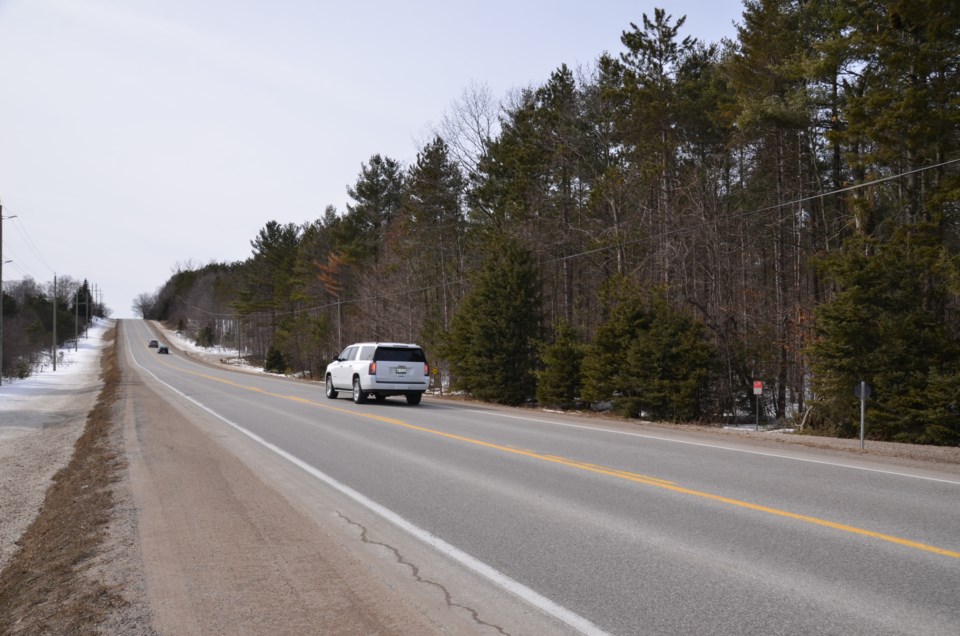A county-owned site on Horseshoe Valley Road, between Hwy. 400 and County Road 27, ranked tops in Simcoe County’s analysis for not only for a site for a waste transfer station, but also an organics processing facility that could deal with pet waste from the whole region.
Announced today – about a year after the county began working to find a site – 2976 Horseshoe Valley Road West in Springwater became the county’s “One site, one solution”.
Measuring 207 acres, the site enables the county to mitigate any odours that would be emitted from the plant that will process organics – the meat bones and kitchen scraps that are collected from households in the county’s 16 member municipalities.
Because of the size of the site, the facility would not have a residential or business neighbor within half a kilometre of the processing building, the county’s solid waste management director Rob McCullough said. He explained the facility would occupy about 11 acres well set back into the site, so there’d be lots of room for buffers.
The Springwater site also has easy access to Hwys. 400, 26 and 27, and while now county organics are shipped to Hamilton, the county could determine what route(s) trucks would go, in a bid to mitigate traffic impact.
Warden Gerry Marshall noted that during public consultations, trees, traffic and odour were the three main concerns. He said the county will replace trees, work to mitigate odour in the engineering and design of the facility and examine the impact of trucks on Horseshoe Valley Road, which a county road.
While that occurs, the county will begin work on an organics facility business case, which would include choosing its processing technology and whether it should be privately or publicly operated.
It could also accommodate waste from ‘near neighbours’.
“We’ve reached out to Barrie and Orillia. They’re interested in being customers,” said McCullough, who noted county council is to discuss the Springwater site March 8 and make a decision March 22.
McCullough added he’d like to see the organics processing facility accept pet waste and possibly diapers.
“Our highest priority is to get the pet waste out. Just about any process can do that,” he explained.
Garbage audits consistently reveal there’s twice as much pet waste as diapers in county household waste.
“Any technology can deal with it. The problem is you have to have a product you can sell. If it’s got bits of plastic in it, no one wants to buy it,” McCullough explained.
“We believe over 50 per cent of the material in the garbage (now) could be diverted. If you add in kitty litter, household hazard waste and glass, 75 per cent could be diverted.”
For more details about the facilities, visit simcoe.ca/opf and simcoe.ca/mmf or view the staff report at simcoe.ca/dpt/clk/amr.



